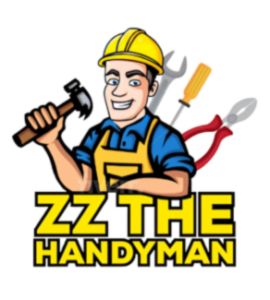Hot water is a necessity in every home, from a refreshing morning shower to washing dishes and doing laundry. A reliable hot water heater ensures your household runs smoothly. But when it’s time for installation or replacement, you may find yourself facing a maze of decisions. ZZ The HandyMan is here to guide you through the process, whether you’re considering a gas or electric water heater.
Understanding the Basics of Water Heaters
Water heaters are categorized into two main types: gas and electric. Both have unique features and benefits tailored to different needs. Here’s a quick overview:
Gas Water Heaters
- How They Work: Gas water heaters use a burner located at the bottom of the tank, fueled by natural gas or propane. The burner heats the water stored in the tank.
- Advantages:
- Quick heating time.
- More energy-efficient in areas where natural gas is cheaper than electricity.
- Effective for larger households.
- Considerations:
- Requires proper ventilation for exhaust gases.
- Higher initial installation costs.
Electric Water Heaters
- How They Work: Electric water heaters use heating elements inside the tank to warm the water. These elements are powered by electricity.
- Advantages:
- Easier to install.
- Lower upfront costs.
- No need for ventilation.
- Considerations:
- Slower heating time compared to gas models.
- Can be more expensive to operate in areas with high electricity rates.
Signs It’s Time to Replace Your Water Heater
Recognizing when to replace your water heater can save you from unexpected cold showers and costly repairs. Here are common signs that it’s time for a new unit:
- Age of the Heater: Most water heaters last 8-12 years. If yours is older, replacement may be more cost-effective than repair.
- Inconsistent Hot Water: If your water temperature fluctuates, it’s a sign the heating element or burner might be failing.
- Leaks: Water pooling around the heater indicates a tank leak, which usually means replacement is necessary.
- Rusty or Discolored Water: Corrosion inside the tank often leads to rusty water, signaling the need for a new unit.
- Unusual Noises: Rumbling or popping sounds can indicate sediment buildup, reducing efficiency and potentially damaging the heater.
Steps for Water Heater Installation and Replacement
At ZZ The HandyMan, we follow a streamlined process to ensure your water heater installation or replacement is hassle-free:
1. Assessment and Selection
- Evaluate Needs: We assess your household’s hot water demands to recommend the best type and size of water heater.
- Energy Efficiency: Our team helps you choose an energy-efficient model that meets your budget and long-term savings goals.
2. Preparation
- Turn Off Utilities: For gas heaters, we shut off the gas supply. For electric heaters, we disconnect the power.
- Drain the Tank: The old water heater is drained and disconnected.
- Check Connections: We inspect plumbing and electrical connections to ensure they’re in good condition and compatible with the new unit.
3. Installation
- Positioning: The new water heater is placed securely in its designated area.
- Connection:
- For gas models, we connect the gas line and ensure proper ventilation.
- For electric models, we connect the heating elements and ensure safe wiring.
- Fill and Test: The tank is filled with water, and the heater is tested to confirm it’s functioning correctly.
4. Final Checks
- Safety Inspection: We double-check all connections to prevent leaks or hazards.
- Customer Walkthrough: Our team explains the operation and maintenance of your new water heater.
Factors to Consider When Choosing Between Gas and Electric
Making the right choice depends on several factors:
- Household Size: Larger households with higher hot water demand may benefit from gas heaters.
- Energy Costs: Consider the cost of gas versus electricity in your area.
- Installation Requirements: Electric heaters are ideal for homes without a natural gas supply or proper ventilation for gas models.
- Environmental Impact: Gas heaters emit greenhouse gases, while electric heaters can be powered by renewable energy sources for a greener option.
Maintenance Tips for Longevity
Proper maintenance can extend the life of your water heater and ensure consistent performance:
- Regular Flushing: Flush the tank annually to remove sediment buildup.
- Inspect the Anode Rod: Replace the anode rod every few years to prevent tank corrosion.
- Check the Pressure Relief Valve: Test this valve annually to ensure it’s functioning correctly.
- Monitor for Leaks: Regularly inspect the tank and connections for any signs of leakage.
Why Choose ZZ The HandyMan?
With years of experience and a commitment to quality, ZZ The HandyMan is your trusted partner for water heater installation and replacement. Here’s what sets us apart:
- Expertise: Our skilled technicians are trained to handle all types of water heaters.
- Transparency: We provide upfront pricing and detailed explanations, so you know exactly what to expect.
- Customer Satisfaction: Your comfort and convenience are our priorities. We ensure every job is done right the first time.
- Emergency Services: Facing an urgent water heater issue? We’re here to help, even on short notice.
Conclusion
Investing in the right water heater and ensuring proper installation can save you time, money, and frustration in the long run. Whether you’re upgrading to a more energy-efficient model or replacing an old unit, ZZ The HandyMan has you covered. From gas to electric, we’ll help you find the perfect solution for your home. Contact us today for reliable water heater services tailored to your needs. Experience the comfort of consistent hot water with ZZ The HandyMan—your trusted partner for home improvement!


